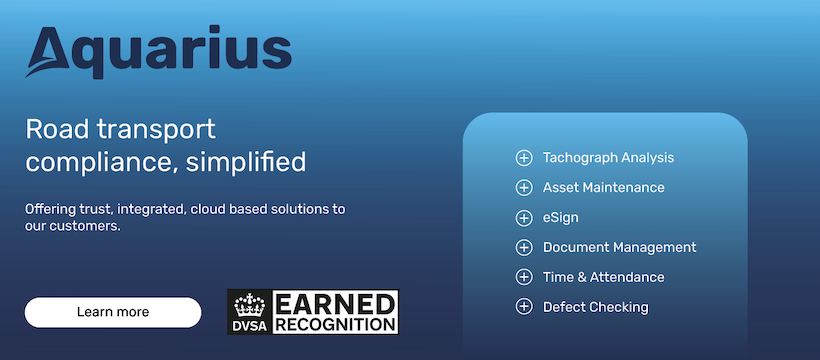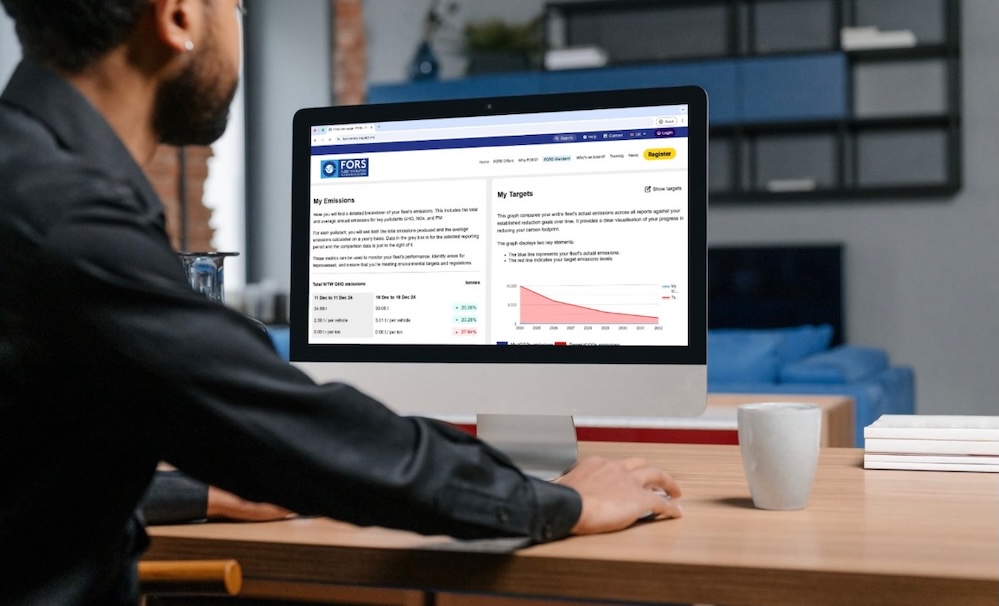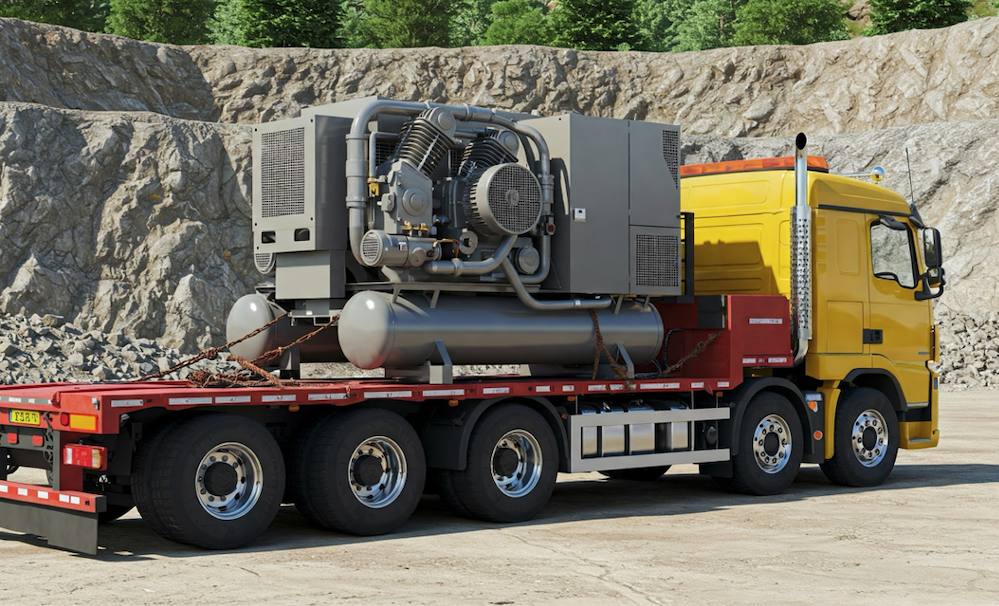FORS, the Fleet Operator Recognition Scheme, has unveiled its new FORS Emissions Calculator; an innovative, digital tool – developed in association with Transport for London (TfL) and Zemo Partnership – to help its operators better understand and reduce emissions.
The FORS Emissions Calculator is a free and easy-to-use tool for FORS operators to support their journey to net zero by providing a recognised, consistent method of calculating and reporting well-to-wheel (WTW) emissions data.
The tool is fully aligned with the new decarbonisation requirements of the FORS Standard, as it provides the emissions data required for Silver S2 (Performance data report) and Gold G3 (Decarbonisation strategy), while also assisting operators with their Scope 1, 2 or 3 emissions reporting as per the Greenhouse Gas Protocol.
The calculator requires basic parameters, including vehicle type, fuel type, quantity used, number of vehicles and mileages. To obtain the most accurate results, operators can provide a comprehensive set of information including second fuel type and fuel used (applicable for diesel and hydrogen dual-fuel vehicles and plug-in hybrids), emissions standard (applicable for vehicles with diesel or gas engines) and association with the Renewable Fuels Assurance Scheme declaration (applicable for renewable fuels including biodiesel, renewable diesel), biomethane (compressed or liquified) and renewable hydrogen.
Once parameters are entered, the FORS Emissions Calculator determines the total estimated emissions from the tailpipe (NOx), tailpipe particulate matter, the total absolute WTW greenhouse gas emissions and selected WTW greenhouse gas emissions intensities. These are then totalled and can be compared to previous years, or any target set by the operator.
FORS Concession Director, Geraint Davies, said: “Our aim with the FORS Emissions Calculator is to empower and encourage fleet operators to take a proactive approach to emissions reduction. The tool not only serves as an innovative solution to help operators reduce their carbon footprint, it also plays a significant role in ensuring they stay on track towards their net zero targets.”









